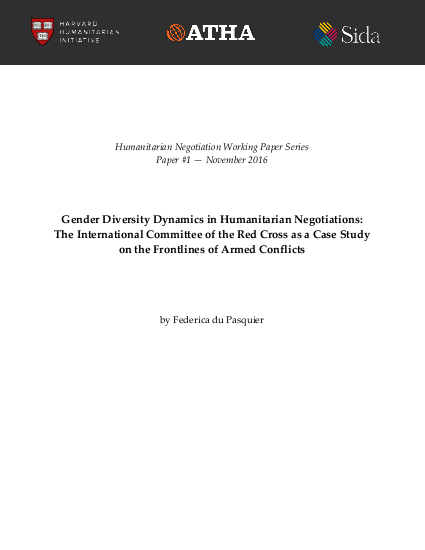
Negotiations for access are crucial for the success of humanitarian operations. They also occur in contexts of armed conflict and violence that typically entrench gender identities. Building on the vast research showing that gender affects the conduct and outcome of negotiations, this paper explores gender dynamics in a humanitarian setting. After outlining its methodology and surveying the relevant literature, this paper sketches out the ways 21 practitioners at the International Committee of the Red Cross see gender dynamics affecting their work in the field. These interviews support previous findings on men and women’s diverging conceptions of gender’s impact and relevance, as well as on the cross-cultural consistency of gender dynamics in war. In a context where, unlike in many corporate settings, women’s work as humanitarian actors is congruent with prescriptive gender stereotypes, this study shows that they can be perceived as more legitimate because they are thought of as selfless caregivers and potential mothers.
This paper ultimately argues that, rather than studying the impact of gender in isolation, further research should explore how the intersectionality of different diversity dimensions—such as gender, race/ethnicity, age, and religion—affect humanitarian negotiations. In terms of policy implications, this study makes the case for actively fostering diversity, including in terms of gender, within negotiating teams to ensure they are more flexible in adapting to different scenarios and more creative in dealing with complex problems.